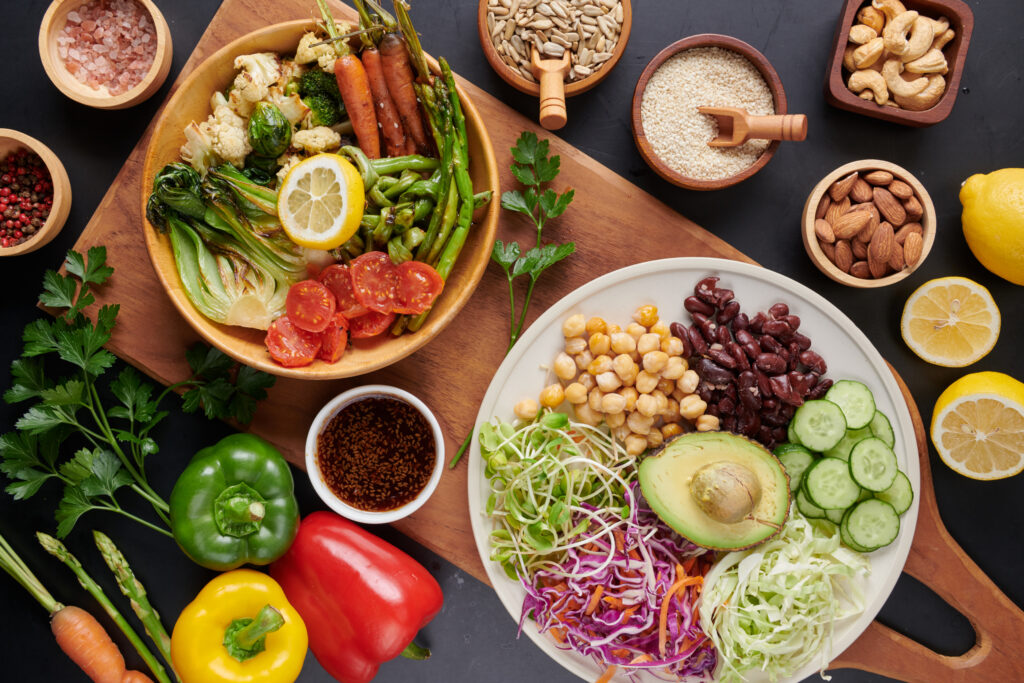IS YOUR PERIOD IRREGULAR?
Do any of the following characteristics remind you of your period (and not your ex)?
- Unpredictable
- Shows up randomly with inconsistent frequency, duration and flow
- Always late
- Scanty
- Abnormally heavy and prolonged
- Causes other unpleasant problems like prominent mood changes, and unbearable pain and discomfort

If so, you probably have a period profile that fits into one or more of the following conditions:
- Amenorrhea – cessation of the monthly cycle (reversible)
- Oligomenorrhea – infrequent cycle
- Dysmenorrhea – abnormally painful periods
- Menorrhagia – excessive blood flow for more than 7 – 9 days
The average menstrual cycle is a period of menstruation of 2 – 8 days duration, once every 28 days (or 21 – 35 days).
However, multiple reasons that include lifestyle habits, hormonal imbalances and disease conditions could cause irregularities in your period. To find out more about this, check out what we have to say about Delayed Periods – Reasons, Causes and Corrective Measures.
DIET
You cannot emphasize enough on the irrefutable connection between eating healthy and menstrual wellness. Hormonal imbalance and body fat percentage (both ends of the weight spectrum) are one of the two main causes that instigate irregular periods.
Thus, opting for a daily balanced diet made up of a variety of fresh, nutritious meals that include all food groups, can be extremely beneficial in both maintaining hormonal balance and a healthy body weight. Additionally, its better to steer clear of fad, “instant” weight-loss programs such as very low-carb, high-fiber and very low fat diets, as they tend to wreak havoc on your hormones.

FOODS AND SUPPLEMENTS THAT PROMOTE PERIOD HEALTH
- Complex carbs – Always opt for whole grains as opposed to simple, refined and processed foods.
- Healthy fats – PUFA (polyunsaturated fatty acids) from fish, nuts and seeds are particularly beneficial in maintaining a healthy weight and hormonal balance.
- Iron, Folate and Vitamin B6 – Foods rich in these micronutrients such as whole grains, legumes, green leafy vegetables and certain fruits are important for your reproductive health.
- Vitamin D, Vitamin E and Calcium – Micronutrients such as these, consumed either through your fortified daily foods, or as supplements, have been found to vastly contribute to period health in general.
- Jaggery – This iron-rich, comforting sweetener may help with period regulation while also easing your cramps.
- Turmeric – This is a spice that has well-documented antispasmodic and anti-inflammatory properties that help in period pain and discomfort.
- Ginger – Especially taken along with bee’s honey, ginger has been found to contribute to regulating the menstrual cycle when included regularly in the diet.
- Cinnamon – Either used in daily cooking or taken in the form of a tea, cinnamon has a positive effect on the blood flow to the uterus and may help in relieving your period symptoms such as pain, nausea and vomiting.
- Pineapple and Papaya– Pineapple contains the enzyme bromelain that facilitates good blood circulation and the production of red and white blood cells, while papaya contains carotene that regulates estrogen levels and stimulates uterine muscle contractions (best used for delayed periods).
- Aloe Vera – has been praised as a magical potion for gut health, period regulation, weight reduction and enhanced metabolism. However, you should be avoided taking it while on your period.
- Evening Primrose Oil and Castor Oil – Traditionally, these oils are used to help with period pain and coaxing the cycle to begin.
- Herbal supplements – Black Cohosh, mugwort and chasteberry are examples of some herbs that have ancient connections to female reproductive health. However, you should keep in mind that herbal supplements can be extremely potent, and may have adverse reactions when taken along with other medication, so it is always better to discuss with your doctor, before you jump feet first into exploring native remedies.
ACUPUNCTURE AND ACUPRESSURE
Traditional Chinese medicinal practices have been shown to help in both symptomatic relief and prevention and cure of a variety of menstrual issues.
EXERCISE
There is no doubt that a regular exercise and fitness routine has a direct, positive impact on menstrual health. However, it is important to strike a balance as excessive, high-intensity training such as that of professional athletes could result in amenorrhea. The basic goal for regular women should be to get moving, and enjoy the myriad of benefits that you can only achieve through physical activity.
YOGA
A 2013 study with 129 participants found that 35 to 40 minutes of yoga, five days a week for six months had positive effect on hormones related to irregular periods.
DE-STRESS
One of the body’s stress responses are elevated levels of the hormones cortisol and progesterone, of which the latter, when chronically high, could cause problems with ovulation, and thereby period regularity.
Embracing mindfulness is one way of inviting positivity into your system and changing the way you respond to stress stimuli. Similarly, practicing good sleep habits is another vital factor in combating chronic stress. Having a good night’s sleep is truly a blessing that evades a lot of people nowadays, largely due to the increase in screen time, and the blurring of the lines between work and personal life.
Do what it takes to relax, unwind and rest. Your goal should be to allow your body to de-stress and recuperate, and not just take some down time, only to get back on the grind feeling even more tired than when you left it.
BIRTH CONTROL
If you are using prescription birth control pills, then do take them exactly in the manner prescribed to you by your doctor. Hormone medications can cause grievous, long-term harm to your reproductive health when misused or used inconsistently.

GO TO THE DOCTOR
Do not hesitate to consult your doctor or healthcare provider as soon as possible if you:
- Miss more than 3 periods a year
- Consistently have cycles that are shorter than 21 days
- Consistently have cycles that are longer than 35 days
- Experience heavier flow than usual that lasts more than 7-9 days especially if you pass blood clots larger than the size of a coin
- Suffer from debilitating pain during periods

